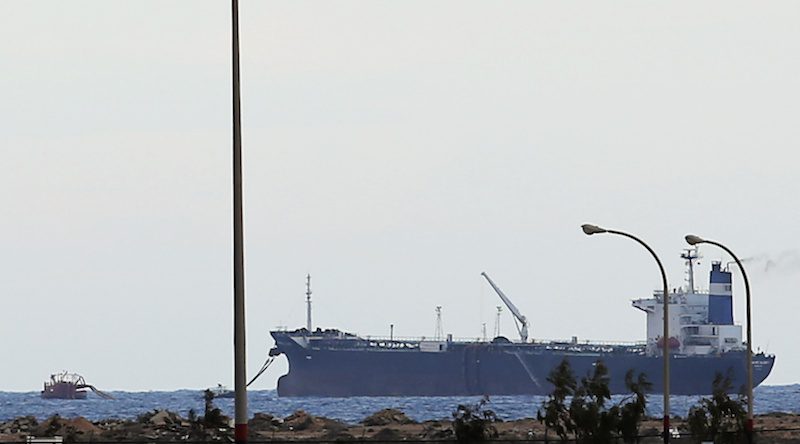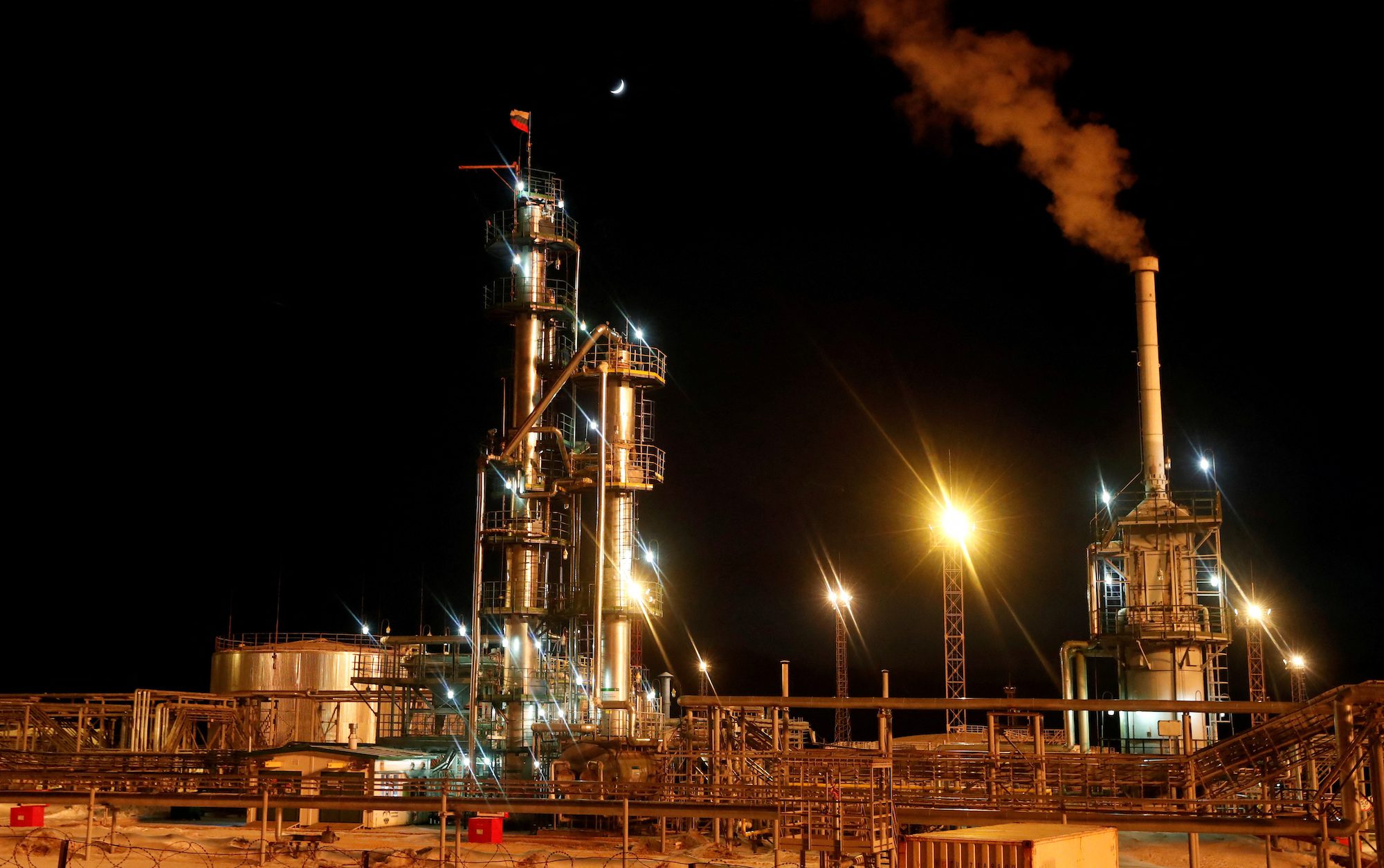By Maher Chmaytelli
April 1 (Bloomberg) — The Libyan government may be willing to accept an interim deal that would allow oil ports to reopen without rebels ceding control, according to Eurasia Group.
Shipments would be managed by central government while the rebels would retain military control over the facilities, said London-based Eurasia analyst Riccardo Fabiani said. The rebels took control of four of Libya’s nine oil ports in July.
“The government could accept an agreement along these lines, because it would would give it some respite financially,” Fabiani said in an e-mail.
Libya’s crude output has slumped to about a 10th of its capacity as protests over jobs, pay and political rights disrupt operations. The Barqa rebels, led by former Petroleum Facilities Guards commander Ibrahim Al-Jedran, are demanding a 15 percent share of national oil revenue for the eastern region.
“The federalists’ rhetoric has changed sharply and they are now talking about agreeing to an interim deal with the central authorities,” said Fabiani. “This would be a tactical concession: the rebels would agree to reopen the ports while remaining in control of the ports.”
A deal with the government on restoring exports may come within a month, Ali Al-Hasy, spokesman for the self-declared Executive Office for Barqa, or Cyrenaica region, said yesterday.
Tensions Easing
An attempt by the rebels to sell crude independently of the government failed last month as the U.S. Navy intercepted the tanker Morning Glory they had loaded in Es Sider, one of the ports they control.
The Libyan government released three rebels who were on board the Morning Glory, the Libya Herald reported yesterday. This is a sign that tensions are easing between the parties, said Theodore Karasik, director of research at the Dubai-based Institute for Near East and Gulf Military Analysis.
Any agreement reached between the government and the Cyrenaica forces will probably be temporary, London-based IHS analyst Firas Abi Ali said in an e-mail today.
“Given the low capability of government forces and their questionable loyalty, such an agreement won’t prevent future disruptions of output by various interest groups such as workers, armed militias and tribesmen,” he said.
To contact the reporter on this story: Maher Chmaytelli in Dubai at [email protected] To contact the editors responsible for this story: Alaric Nightingale at [email protected] Rachel Graham
Copyright 2014 Bloomberg.

 Join The Club
Join The Club











